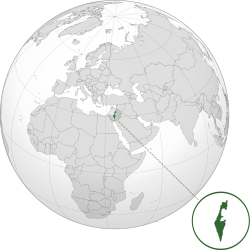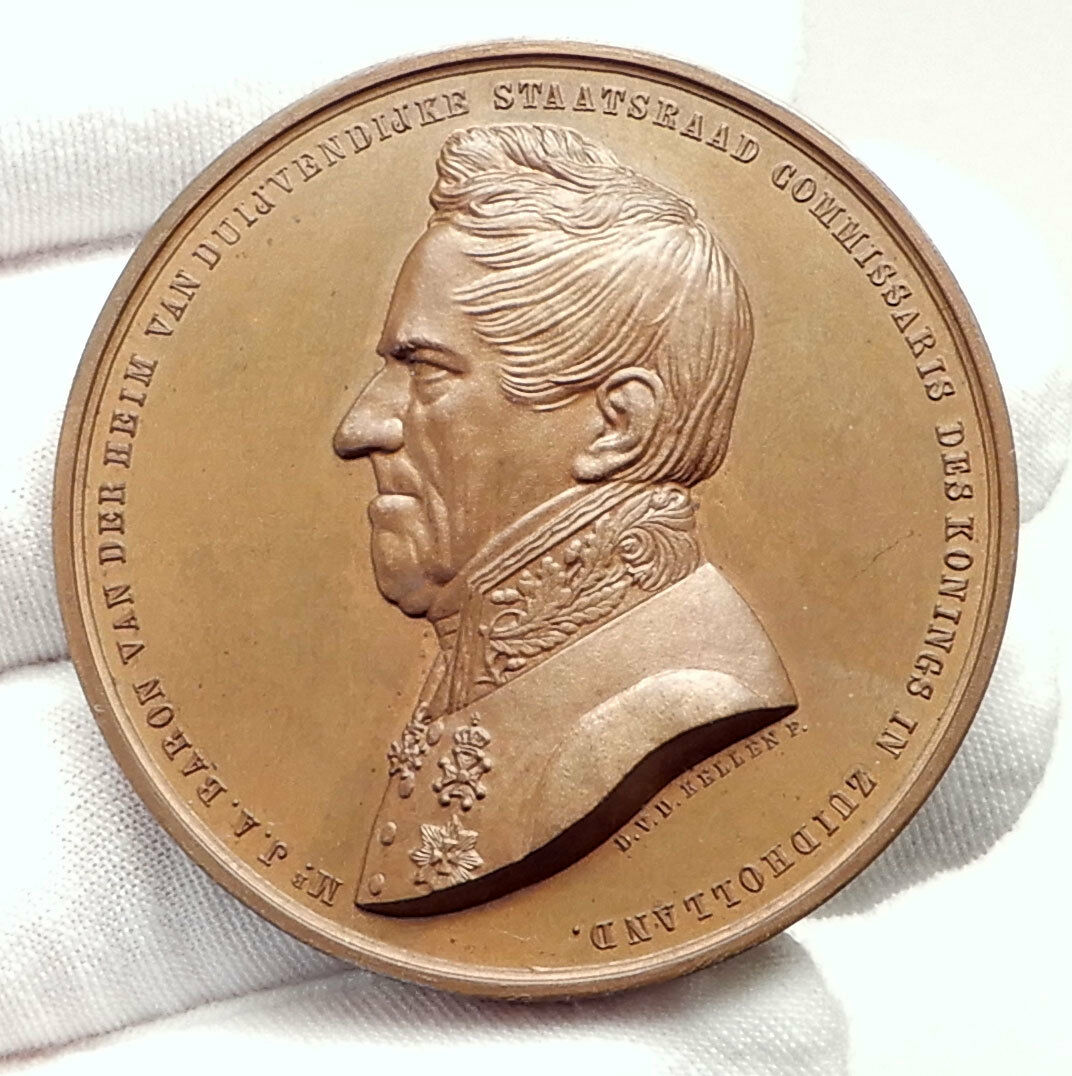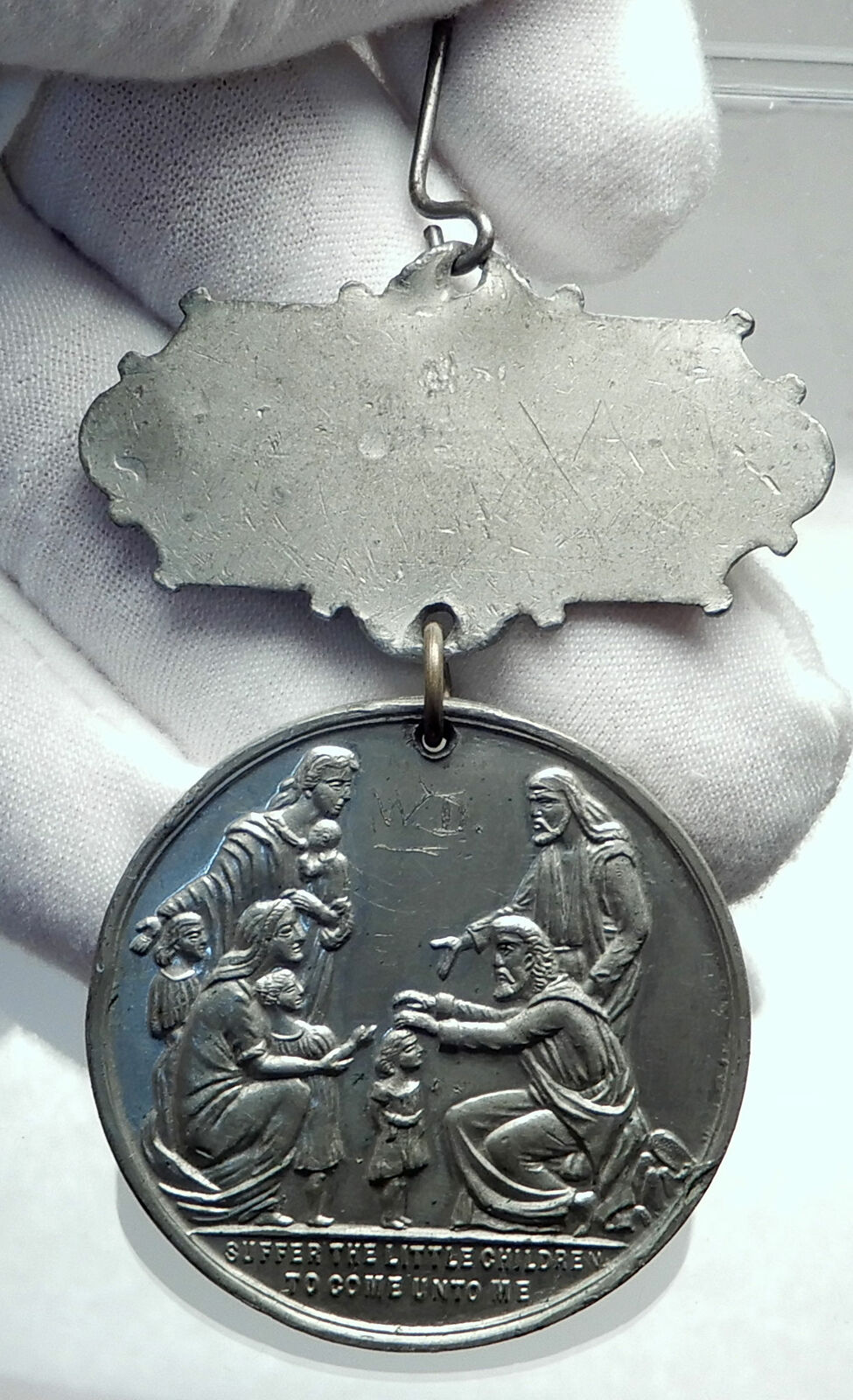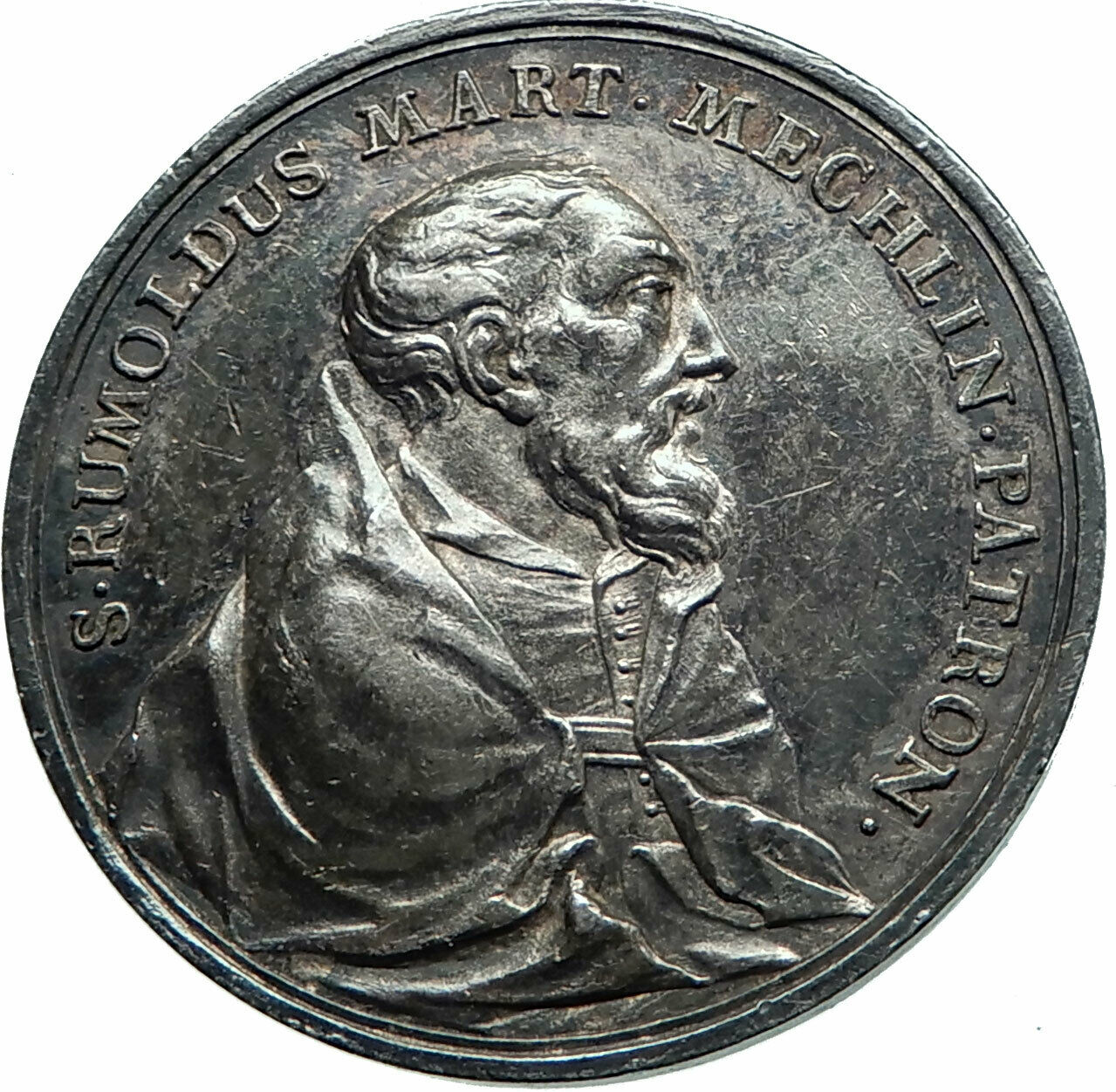|
Israel – Tel Aviv 30 Year Anniversary
1959 Silver Medal 35mm (29.63 grams) 0.935 Silver (0.960 oz. ASW)
Reference: ICMC# 25003358
והיה ראשיתך מצער ואחריתך ישגה מאוד THOUGH THY BEGINNING WAS SMALL, YET THY LATTER END WILL GREATLY INCREASE איוב ח’ ז’ Job VIII/7, The sand dunes, the waves, remind us of the early Tel Aviv. On the right, a Star of David. On the left, the verse: ‘Though thy beginning was small, yet thy latter end will greatly increase”. On the rim the English translation and the source: Job 8:7.
תל-אביב תרס”ט תשי”ט TEL AVIV 1909-1959, A schematic rendition of a large, prosperous city and on the right an inscription: ‘Tel Aviv 5669-5719″ beside an olive branch.
Edge Lettering:
The State emblem and the words: “State of Israel” in Hebrew and in English.
You are bidding on the exact item pictured, provided with a Certificate of Authenticity and Lifetime Guarantee of Authenticity.
 Tel Aviv-Yafo (Hebrew: תֵּל־אָבִיב-יָפוֹ – Tel Aviv-Yafo, often referred to as just Tel Aviv, is the most populous city in the Gush Dan metropolitan area of Israel. Located on the Israeli Mediterranean coastline and with a population of 460,613, it is the economic and technological center of the country. If East Jerusalem is considered part of Israel, Tel Aviv is the country’s second most populous city after Jerusalem; if not, Tel Aviv is the most populous city before West Jerusalem. Tel Aviv-Yafo (Hebrew: תֵּל־אָבִיב-יָפוֹ – Tel Aviv-Yafo, often referred to as just Tel Aviv, is the most populous city in the Gush Dan metropolitan area of Israel. Located on the Israeli Mediterranean coastline and with a population of 460,613, it is the economic and technological center of the country. If East Jerusalem is considered part of Israel, Tel Aviv is the country’s second most populous city after Jerusalem; if not, Tel Aviv is the most populous city before West Jerusalem.
Tel Aviv is governed by the Tel Aviv-Yafo Municipality, headed by Mayor Ron Huldai, and is home to many foreign embassies. It is a alpha world city and is ranked 25th in the Global Financial Centres Index. Tel Aviv has the third- or fourth-largest economy and the largest economy per capita in the Middle East. The city has the 31st highest cost of living in the world. Tel Aviv receives over 2.5 million international visitors annually. A “party capital” in the Middle East, it has a lively nightlife and 24-hour culture. Tel Aviv has been called The World’s Vegan Food Capital, as it possesses the highest per capita population of vegans in the world, with many vegan eateries throughout the city. Tel Aviv is home to Tel Aviv University, the largest university in the country with more than 30,000 students.

The city was founded in 1909 by the Yishuv (Jewish residents) as a modern housing estate on the outskirts of the ancient port city of Jaffa, then part of the Mutasarrifate of Jerusalem within the Ottoman Empire. It was at first called ‘Ahuzat Bayit’ (lit. “House Estate” or “Homestead”), the name of the association which established the neighbourhood. Its name was changed the following year to ‘Tel Aviv’, after the biblical name Tel Abib adopted by Nahum Sokolow as the title for his Hebrew translation of Theodor Herzl’s 1902 novel Altneuland (“Old New Land”). Other Jewish suburbs of Jaffa established before Tel Aviv eventually became part of Tel Aviv, the oldest among them being Neve Tzedek (est. 1886). Tel Aviv was given “township” status within the Jaffa Municipality in 1921, and became independent from Jaffa in 1934. After the 1947-1949 Palestine war Tel Aviv began the municipal annexation of parts of Jaffa, fully unified with Jaffa under the name “Tel Aviv” in April 1950, and was renamed to “Tel Aviv-Yafo” in August 1950.
Immigration by mostly Jewish refugees meant that the growth of Tel Aviv soon outpaced that of Jaffa, which had a majority Arab population at the time. Tel Aviv and Jaffa were later merged into a single municipality in 1950, two years after the Israeli Declaration of Independence, which was proclaimed in the city. Tel Aviv’s White City, designated a UNESCO World Heritage Site in 2003, comprises the world’s largest concentration of International Style buildings, including Bauhaus and other related modernist architectural styles.
 Israel (/ˈɪzriəl, ˈɪzreɪəl/; Hebrew: יִשְׂרָאֵל; Arabic: إِسْرَائِيل), officially the State of Israel, is a country in the Middle East, on the southeastern shore of the Mediterranean Sea and the northern shore of the Red Sea. It has land borders with Lebanon to the north, Syria to the northeast, Jordan on the east, the Palestinian territories of the West Bank and Gaza Strip to the east and west, respectively, and Egypt to the southwest. The country contains geographically diverse features within its relatively small area. Israel’s economic and technological center is Tel Aviv, while its seat of government and proclaimed capital is Jerusalem, although the state’s sovereignty over Jerusalem has only partial recognition. Israel (/ˈɪzriəl, ˈɪzreɪəl/; Hebrew: יִשְׂרָאֵל; Arabic: إِسْرَائِيل), officially the State of Israel, is a country in the Middle East, on the southeastern shore of the Mediterranean Sea and the northern shore of the Red Sea. It has land borders with Lebanon to the north, Syria to the northeast, Jordan on the east, the Palestinian territories of the West Bank and Gaza Strip to the east and west, respectively, and Egypt to the southwest. The country contains geographically diverse features within its relatively small area. Israel’s economic and technological center is Tel Aviv, while its seat of government and proclaimed capital is Jerusalem, although the state’s sovereignty over Jerusalem has only partial recognition.

Israel has evidence of the earliest migration of hominids out of Africa. Canaanite tribes are archaeologically attested since the Middle Bronze Age, while the Kingdoms of Israel and Judah emerged during the Iron Age. The Neo-Assyrian Empire destroyed Israel around 720 BCE. Judah was later conquered by the Babylonian, Persian and Hellenistic empires and had existed as Jewish autonomous provinces. The successful Maccabean Revolt led to an independent Hasmonean kingdom by 110 BCE, which in 63 BCE however became a client state of the Roman Republic that subsequently installed the Herodian dynasty in 37 BCE, and in 6 CE created the Roman province of Judea. Judea lasted as a Roman province until the failed Jewish revolts resulted in widespread destruction, expulsion of Jewish population and the renaming of the region from Iudaea to Syria Palaestina.[34] Jewish presence in the region has persisted to a certain extent over the centuries. In the 7th century the Levant was taken from the Byzantine Empire by the Arabs and remained in Muslim control until the First Crusade of 1099, followed by the Ayyubid conquest of 1187. The Mamluk Sultanate of Egypt extended its control over the Levant in the 13th century until its defeat by the Ottoman Empire in 1517. During the 19th century, national awakening among Jews led to the establishment of the Zionist movement in the diaspora followed by waves of immigration to Ottoman and later British Palestine.
 In 1947, the United Nations adopted a Partition Plan for Palestine recommending the creation of independent Arab and Jewish states and an internationalized Jerusalem. The plan was accepted by the Jewish Agency, and rejected by Arab leaders. The following year, the Jewish Agency declared the independence of the State of Israel, and the subsequent 1948 Arab-Israeli War saw Israel’s establishment over most of the former Mandate territory, while the West Bank and Gaza were held by neighboring Arab states. Israel has since fought several wars with Arab countries, and it has since 1967 occupied territories including the West Bank, Golan Heights and the Gaza Strip (still considered occupied after 2005 disengagement, although some legal experts dispute this claim).[41][42][43][fn 4] It extended its laws to the Golan Heights and East Jerusalem, but not the West Bank. Israel’s occupation of the Palestinian territories is the world’s longest military occupation in modern times.[fn 4][49] Efforts to resolve the Israeli-Palestinian conflict have not resulted in a final peace agreement. However, peace treaties between Israel and both Egypt and Jordan have been signed. In 1947, the United Nations adopted a Partition Plan for Palestine recommending the creation of independent Arab and Jewish states and an internationalized Jerusalem. The plan was accepted by the Jewish Agency, and rejected by Arab leaders. The following year, the Jewish Agency declared the independence of the State of Israel, and the subsequent 1948 Arab-Israeli War saw Israel’s establishment over most of the former Mandate territory, while the West Bank and Gaza were held by neighboring Arab states. Israel has since fought several wars with Arab countries, and it has since 1967 occupied territories including the West Bank, Golan Heights and the Gaza Strip (still considered occupied after 2005 disengagement, although some legal experts dispute this claim).[41][42][43][fn 4] It extended its laws to the Golan Heights and East Jerusalem, but not the West Bank. Israel’s occupation of the Palestinian territories is the world’s longest military occupation in modern times.[fn 4][49] Efforts to resolve the Israeli-Palestinian conflict have not resulted in a final peace agreement. However, peace treaties between Israel and both Egypt and Jordan have been signed.
In its Basic Laws, Israel defines itself as a Jewish and democratic state. Israel is a representative democracy[neutrality is disputed] with a parliamentary system, proportional representation and universal suffrage. The prime minister is head of government and the Knesset is the legislature. Israel is a developed country and an OECD member, with the 32nd-largest economy in the world by nominal gross domestic product as of 2017. The country benefits from a highly skilled workforce and is among the most educated countries in the world with one of the highest percentages of its citizens holding a tertiary education degree. Israel has the highest standard of living in the Middle East, and has one of the highest life expectancies in the world.
|





 Tel Aviv-Yafo (Hebrew: תֵּל־אָבִיב-יָפוֹ – Tel Aviv-Yafo, often referred to as just Tel Aviv, is the most populous city in the Gush Dan metropolitan area of Israel. Located on the Israeli Mediterranean coastline and with a population of 460,613, it is the economic and technological center of the country. If East Jerusalem is considered part of Israel, Tel Aviv is the country’s second most populous city after Jerusalem; if not, Tel Aviv is the most populous city before West Jerusalem.
Tel Aviv-Yafo (Hebrew: תֵּל־אָבִיב-יָפוֹ – Tel Aviv-Yafo, often referred to as just Tel Aviv, is the most populous city in the Gush Dan metropolitan area of Israel. Located on the Israeli Mediterranean coastline and with a population of 460,613, it is the economic and technological center of the country. If East Jerusalem is considered part of Israel, Tel Aviv is the country’s second most populous city after Jerusalem; if not, Tel Aviv is the most populous city before West Jerusalem. 
 Israel (/ˈɪzriəl, ˈɪzreɪəl/; Hebrew: יִשְׂרָאֵל; Arabic: إِسْرَائِيل), officially the State of Israel, is a country in the Middle East, on the southeastern shore of the Mediterranean Sea and the northern shore of the Red Sea. It has land borders with Lebanon to the north, Syria to the northeast, Jordan on the east, the Palestinian territories of the West Bank and Gaza Strip to the east and west, respectively, and Egypt to the southwest. The country contains geographically diverse features within its relatively small area. Israel’s economic and technological center is Tel Aviv, while its seat of government and proclaimed capital is Jerusalem, although the state’s sovereignty over Jerusalem has only partial recognition.
Israel (/ˈɪzriəl, ˈɪzreɪəl/; Hebrew: יִשְׂרָאֵל; Arabic: إِسْرَائِيل), officially the State of Israel, is a country in the Middle East, on the southeastern shore of the Mediterranean Sea and the northern shore of the Red Sea. It has land borders with Lebanon to the north, Syria to the northeast, Jordan on the east, the Palestinian territories of the West Bank and Gaza Strip to the east and west, respectively, and Egypt to the southwest. The country contains geographically diverse features within its relatively small area. Israel’s economic and technological center is Tel Aviv, while its seat of government and proclaimed capital is Jerusalem, although the state’s sovereignty over Jerusalem has only partial recognition.
 In 1947, the United Nations adopted a Partition Plan for Palestine recommending the creation of independent Arab and Jewish states and an internationalized Jerusalem. The plan was accepted by the Jewish Agency, and rejected by Arab leaders. The following year, the Jewish Agency declared the independence of the State of Israel, and the subsequent 1948 Arab-Israeli War saw Israel’s establishment over most of the former Mandate territory, while the West Bank and Gaza were held by neighboring Arab states. Israel has since fought several wars with Arab countries, and it has since 1967 occupied territories including the West Bank, Golan Heights and the Gaza Strip (still considered occupied after 2005 disengagement, although some legal experts dispute this claim).[41][42][43][fn 4] It extended its laws to the Golan Heights and East Jerusalem, but not the West Bank. Israel’s occupation of the Palestinian territories is the world’s longest military occupation in modern times.[fn 4][49] Efforts to resolve the Israeli-Palestinian conflict have not resulted in a final peace agreement. However, peace treaties between Israel and both Egypt and Jordan have been signed.
In 1947, the United Nations adopted a Partition Plan for Palestine recommending the creation of independent Arab and Jewish states and an internationalized Jerusalem. The plan was accepted by the Jewish Agency, and rejected by Arab leaders. The following year, the Jewish Agency declared the independence of the State of Israel, and the subsequent 1948 Arab-Israeli War saw Israel’s establishment over most of the former Mandate territory, while the West Bank and Gaza were held by neighboring Arab states. Israel has since fought several wars with Arab countries, and it has since 1967 occupied territories including the West Bank, Golan Heights and the Gaza Strip (still considered occupied after 2005 disengagement, although some legal experts dispute this claim).[41][42][43][fn 4] It extended its laws to the Golan Heights and East Jerusalem, but not the West Bank. Israel’s occupation of the Palestinian territories is the world’s longest military occupation in modern times.[fn 4][49] Efforts to resolve the Israeli-Palestinian conflict have not resulted in a final peace agreement. However, peace treaties between Israel and both Egypt and Jordan have been signed. 




